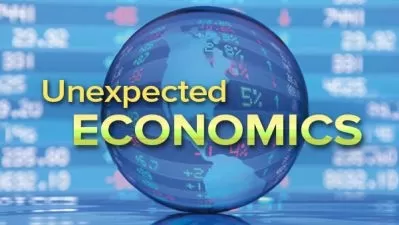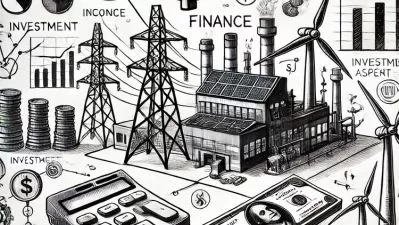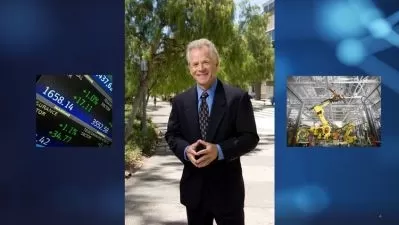Money and Banking: What Everyone Should Know
Michael K. Salemi
18:07:26
Description
From the invention of coins by the ancient Lydians to the 21st-century eurozone, human history tells the story of ingenious financial systems and the never-ending quest for economic solutions. Today, our global economy is both fascinating and dizzyingly complex—challenging even experts to comprehend it fully. But one thing remains clear: Money and finance play a deeply fundamental role in your life.
Money is a social contract that affects the decisions of nations and individuals. Our financial institutions drive our political systems and the growth of nations. And money and banking are indispensable in both your daily financial transactions and your most essential long-term plans. A working knowledge of money and banking systems is critically useful in several ways:
- It helps you understand the complex and often bewildering world of finance.
- It helps you to "read" the current economic climate, to make sense of what you see in the media, and to gauge where the economy is headed.
- It gives you key insights into society and the economic issues in life.
- It allows you to comprehend integral aspects of history and the way civilization developed.
- Perhaps most important, it helps you to plan your own life and to make key financial decisions for yourself and your family.
Speaking to all of this in Money and Banking: What Everyone Should Know, economist and award-winning Professor Michael K. Salemi of The University of North Carolina at Chapel Hill leads you in a panoramic exploration of our monetary and financial systems, their inner workings, and their crucial role and presence in your world. In 36 incisive and detailed lectures, he gives you a penetrating look at the financial institutions that are fundamental to your life and well-being. Beginning with the colorful history of money, including the monetary history of the United States, you investigate pivotal topics, including
- the crucial role of public confidence in the stability of our financial system;
- how money is created by commercial and central banks;
- how "Wall Street" and "Main Street" are inextricably intertwined, each requiring the success of the other;
- the dramatic history and causes of hyperinflation;
- the uses of "local" currencies and nontraditional monetary systems;
- the thorny problem of financial firms that are deemed "too big to fail," and why being named "TBTF" gives firms an incentive to engage in risky investments;
- the irrational psychology of stock market "bubbles," in which investing becomes speculative gambling; and
- why the value of the dollar depends on interest rates elsewhere in the world.
Dr. Salemi reveals all of this and more as a great and rousing human story, with remarkable details of how financial systems came into being, the problems they're designed to solve, and how they've evolved and changed. While those with knowledge of economics will find rich depth in these lectures, the course is also a welcoming entry for those with no background in finance.
Explore the Core Institutions of Economic Life
As a guiding theme of the course, you observe the ways in which economies require efficient and evolving financial institutions and markets to fulfill their potential. In building a full view of our financial system, you delve into these vital subjects:
- Central banks and the Federal Reserve: You learn in depth about the roles and functions of central banks, how they oversee economies and control money supply, and what makes the Fed and the European Central Bank the most powerful financial institutions in the world.
- Commercial banks: You study the operation of commercial banks and other depository institutions, their asset structure, the services they perform, and the important benefits they provide for depositors, savers, and borrowers.
- Interest rates and interest rate policy: Five lectures are devoted to the broad subject of interest rates—the economic forces that determine them, their effects in both national and international finance, and how they impact investing and borrowing.
- Bond and stock markets: You investigate what securities markets offer to investors and the issuers of securities, the ins and outs of stock pricing and bond yields, and why these markets play an essential role in economies.
- Monetary policy: You study the function of monetary policy on the part of governments, central banks, and the International Monetary Fund in stabilizing economies, intervening in crises, and overseeing the world financial system.
- Foreign exchange and international banking: You explore topics such as the factors governing currency exchange, how exchange rates affect international trade, and why international banking is a crucial feature of globalization.
Grasp the Workings of a Global System
Across the arc of Money and Banking, you tackle key topics that shed light on the functioning of our financial system as a whole.
Early in the lectures, you study the critical subject of inflation and its relationship to the consumer price index and to excess money growth. You also investigate the causes and implications of the federal deficit and the national debt. Economic growth, it turns out, is directly related to investment in a nation's "capital stock"—the buildings, equipment, and human resources used in the production process.
In the international arena, you learn what happens when a nation imports more than it exports, and the implications of trade deficits in global economic relationships. You consider the important matter of how central banks steer clear of political pressures and the question of monetary policy coordination between nations, weighing the significant benefits to the global economy of cooperation between central banks.
A Dynamic and Multilayer Resource for Learning
Professor Salemi brings these lectures alive with the flair of a provocative and thoroughly engrossing storyteller. An expert in economic education, he communicates the principles of finance as compelling lessons in human ingenuity, showing you vividly how each economic innovation responds to real-life challenges and dilemmas. You engage with detailed case studies, historical incidents, and current events in understanding topics ranging from investment decisions and the regulation of financial firms to the system of "floating" currency exchange rates.
You also study the underlying logic and meaning of financial concepts and the mathematical formulas that express them if you are interested in learning more about the mathematical dimension of money and banking. In addition, Professor Salemi amplifies the lectures with diagrams, graphs, and animations that clearly illustrate the course content. These helpful visual aids are also included in the course guidebook, so audio listeners can consult and take advantage of them as well.
Essential Knowledge for Living
In Money and Banking: What Everyone Should Know, Professor Salemi offers you the rare chance to gain a grounded understanding of our monetary and financial systems in 36 content-rich lectures. This core knowledge is permanently useful, both in comprehending economic systems at home and abroad and in making informed financial choices for yourself.
Take this opportunity to grasp the vital elements of finance that directly affect our way of life, our national concerns, and your own life and future.
More details
User Reviews
Rating
Michael K. Salemi
Instructor's Courses
The Great Courses
View courses The Great Courses- language english
- Training sessions 36
- duration 18:07:26
- English subtitles has
- Release Date 2023/06/06
































